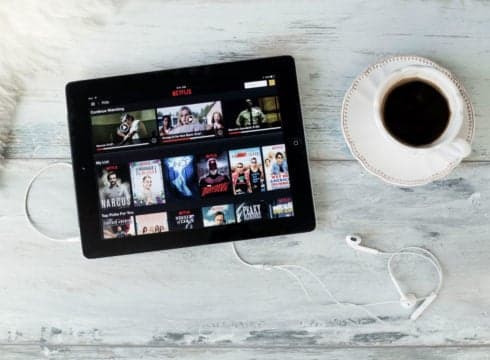59% of Indians feel online content unsuitable for public viewing, says YouGov survey
For the survey, YouGov had collected data from around 1005 respondents
Nine OTT streaming platforms including Netflix, Hotstar, among others, signed a voluntary censorship code in January this year
Inc42 Daily Brief
Stay Ahead With Daily News & Analysis on India’s Tech & Startup Economy
The need for internet censorship has been stressed upon repeatedly by the Indian government. The latest survey by market research and data company YouGov said, around 57% of Indian citizens also think censorship is required for online streaming platforms such as Netflix, Hotstar, Voot, among others. Moreover, nine out of ten people think there should be some form of internet censorship, it said.
The report also said that around 59% of people feel a lot of offensive content unsuitable for public viewing is being created nowadays and hence should be censored. Almost as many (57%) feared that inappropriate content can have an adverse impact on children. Close to half (47%) found it uncomfortable to watch certain types of content around family and hence want some regulation.
For the survey, YouGov had collected data from around 1005 respondents in India between October 22 and 28. When asked about the likely effects of content regulation for online streaming platforms, close to half (47%) said they felt better quality content would be created as well as watched by people due to this change. However, some people felt otherwise and said it could lead to piracy, illegal downloading and deterioration of quality content.
The survey also witnessed more men than women wanting content regulation. While 45% of men wanted regulation always, only 34 % of women felt so. Women were of the opinion that censorship is required only some times. Additionally, GenX was more in favour of censorship than GenZ.
Internet Censorship In India
To stop the misuse of social media and stop the spread of fake news, the government has been insisting on internet content regulation. The censorship suggested by the government largely includes content that is banned by Indian courts or disrespectful to the national emblem and flag. It is also concerned about content that outrages religious sentiments, promotes terrorism or violence against the state and shows child pornography. Around 71 videos of child pornography, rape and gang-rape, among other offences, were in fact taken off from social media, according to the home ministry’s annual report released last week.
However, most social media and OTT companies have been reiterating that regulation in any form would be a threat to free speech. Amazon, Facebook and Google have expressed their fear in the past that this initiative would set a “dangerous” precedent for restricting freedom. To come up with an amicable solution though, online video streaming players including Netflix, Hotstar, Voot, Arre, SonyLIV and ALTBalaji recently signed a code of best practices, a voluntary censorship code to regulate video streaming content. The voluntary censorship is considered by OTT platforms as a preemptive move to avoid Indian government’s imposition of its own rules. Other than the self-censorship, online streaming platforms do not require any certification from the central board of film certification (CBFC) before releasing any content on their platforms.
The government proposes internet censorship by amendment of Section 79 of India’s IT Act. According to the amendment, internet companies should take down content marked as inappropriate by authorities. If a company receives a complaint from a law enforcement agency, the firm should trace and report within 36 hours of the origin of the content and disable that user’s access within a day.
{{#name}}{{name}}{{/name}}{{^name}}-{{/name}}
{{#description}}{{description}}...{{/description}}{{^description}}-{{/description}}
Note: We at Inc42 take our ethics very seriously. More information about it can be found here.


